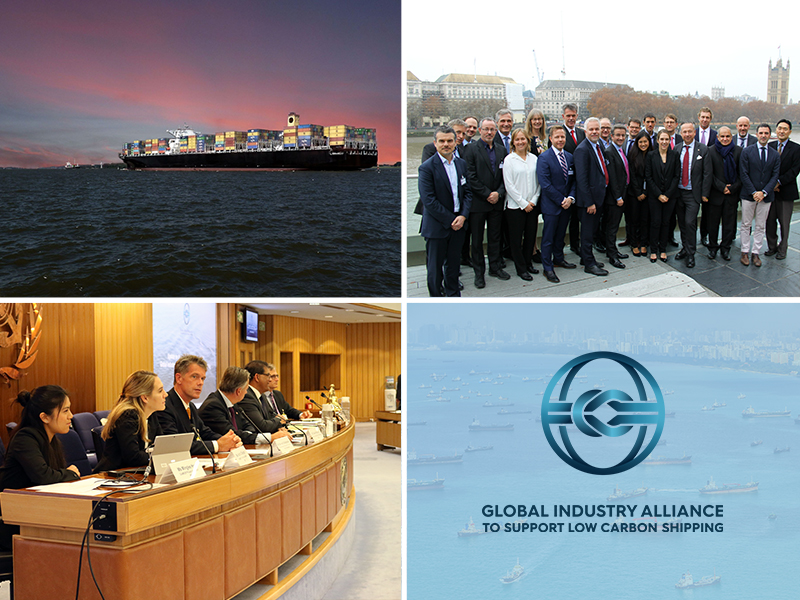Technological innovation and the global introduction of alternative fuels and/or energy sources for international shipping will be integral to achieving the overall ambition in the Initial IMO Strategy on reduction of GHG emissions from ships. A meeting of the IMO Global Industry Alliance to Support Low Carbon Shipping (GIA) Task Force at IMO Headquarters in London (27 November) held a lively debate on the marine fuel for the future - and discussed how the GIA can support IMO in the development of measures that can increase the uptake of low carbon fuels (with a view to feeding this into IMO’s work on the Initial GHG Strategy). The meeting agreed, as a next step, to hold a GIA roundtable early 2019 to discuss how early movers could be incentivised to invest in alternative fuels.
The GIA Task Force includes representatives from members of the GIA, a public-private partnership initiative of the IMO under the framework of the GEF-UNDP-IMO GloMEEP Project that aims to bring together maritime industry leaders to support an energy efficient and low carbon maritime transport system. The meeting took stock of the different workstreams the GIA has embarked on, including the development of E-Learning Course on the Energy Efficient Ship Operation for seafarers and shore-based personnel, and work on the development of short and mid-term solutions that can support a global uptake of the Just-In Time operation of ships.
The GIA agreed to continue its work until December 2019, in line with the time-scale of the GloMEEP project. The GIA currently has 15 members, representing Leading shipowners and operators, classification societies, engine and technology builders and suppliers, big data providers, oil companies and ports.
